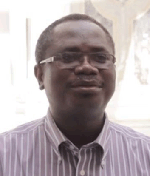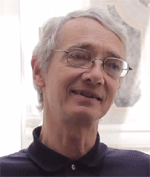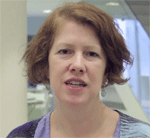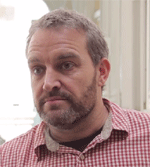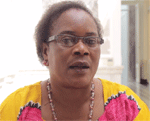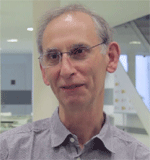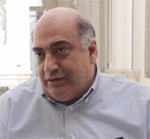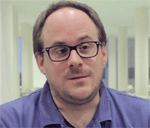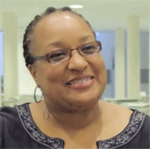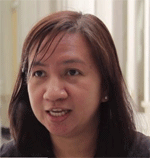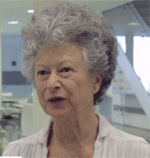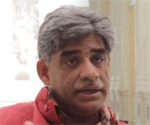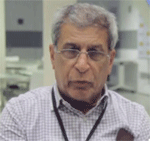Monitoring and accountability: Voices of the "watchers"
Published on Thu, 2014-05-15 09:21
The participants in the civil society strategy meeting on monitoring and accountability organized by Social Watch last february in Montevideo were asked about how they personally work and relate with the huge task of making the powerful accountable. Here is what they said: See all the videos here. Gustave Assah: At present, at Social Watch Benin, we are working on a process of budget monitoring and preparation of a memorandum that allows us to make alternative proposals on issues related to investment and operation in order to show the essential things the national budget must do for the poorest social sectors. This is what we call a citizen evaluation, which should put the emphasis on the development needs, on topics such as water and health. This budget monitoring and accountability allow civil society contribution to local development. See the video here.
Xavier Godinot: The evolution of poverty in the world. The World Bank says that extreme poverty has fallen by half in recent years, but this is based on unreliable indicators. First, because it only takes into account the monetary dimension, when poverty concerns all dimensions of life. And especially the dimension of discrimination, humiliation, which is not at all present in this indicator. The global economic crisis has affected all regions. In Europe, some countries have been more affected than others. In particular, poverty has increased significantly in countries like Greece and Spain. But this increase in poverty is not reflected in this indicator from the World Bank. Thanks to this indicator, poverty has disappeared in Europe and the United States, which is not at all true. See the video here.
Kate McInturff: I work in the project "making women count" which is focus on public policies that increase gender equality. What I do there and also in Social Watch has to do with public financing and looking at the economic and social policies that are empower to close the gap on gender budgeting between men and women in social economic policies. See the video here.
Martin Kirk: Why inequality exists and why poverty exists? It is created by certain rules and structures so things like tax haven system takes huge amount of money out of the public budget around the world increases corporatization of any global institution, including the UN and the World Bank. What we are saying is that increasing situation where economies are used to draw well into the hands of tiny little people that create inequality and huge amount of poverty. See the video here.
Martina Kabisama: In Tanzania we monitor election issues. Seventy NGOs came toghether and work in election observation in a Social Watch project that we learnt from Social Watch Kenya. See the video here.
Simon Stocker: Inequality and poverty is not just a development issue, is an issue of all countries. Migration as development actors and social inclusion is a big challange for the State. See the video here.
Ziad Abdel Samad: Social Watch contributed a lot mainly on the role of monitoring of the public policies and advocacy targeting the national and international actors. This is one of the main roles that contribute to change the attitude, the role and the perspective of CSOs in the region that allow to be able and to follow of what is happening in the region because we are in the middle of this transition period that we are experiencing now in the region. See the video here.
Wolfgang Obenland: Tax justice, tax evasion around the world because is a cause for the governments to have all the revenues they need to provide all the goods, the social services they should provide. There are hundreds of billions of dollars that flow from countries in the South to countries in the North. See the video here.
Tanya Dawkins: The focus of our work is putting people and communities at the center of the global economy and that is based on the recognition that global processes (like trade, finance, investment) have very local impacts. See the video here.
Janet Carandang: The focus of Social Watch Philippines is monitoring the social development commitments and financing for social development as the two complement each other and we also use the strategy for our budget initiative. See the video here.
Barbara Adams: "Partnerships" at the UN are being dominated by big corporations, big governments and big NGOs. See the video here.
Jagadananda: Access to information is essential but not enough. In India we try to make sure that the information is used at all levels to make the institutions of governance accountable. See the video here.
Abdulnabi Alekry: Women and youth initiated the democratic uprising in Bahrein and are at the forefront of the struggle. See the video here. See all the videos here. Tags: |
SUSCRIBE TO OUR NEWSLETTER

